7 Side Effects of Starting a Gluten Free Diet After a Celiac Diagnosis
New blog post! When you receive a celiac diagnosis, one of your first questions - beyond what a gluten free diet even is - might be the side effects of a gluten free diet. So in the spirit of spreading celiac awareness all year long and helping newly diagnosed celiacs adjust more easily than I did, I wanted to write about seven side effects of a gluten free diet you might experience after being diagnosed with celiac disease.
*As always, I am NOT a medical professional. I am simply describing my personal experience, supplemented by the research I can find. PLEASE talk to your doctor and get referred to a gastroenterologist if you suspect you have celiac disease or are struggling after a celiac disease diagnosis!*
So if you’re a new member of the celiac community, I hope this post gives you an idea of what to expect after going gluten free. And if you’re a loved one of someone newly diagnosed with celiac disease, I hope this post gives you ideas of how to show that person some extra love and support!
Unfortunately, that is not always the case. My body actually took several months and a hospitalization to start responding to a gluten free diet, and as I share in this post about a gluten free diet not being enough, I’m not the only celiac who has experienced a delay in healing.
However, I don’t want you to take this as a sign to be discouraged. Instead, just know that you may have to be patient with your body and give yourself a few weeks or months (at the very least) to start recovering from the damage gluten already caused. Even more importantly, make sure you schedule a follow-up with your doctor so that they can monitor how your body is healing and how you’re adjusting to a gluten free diet.
On a related note, you may learn that some of your favorite restaurants have gluten free menus that are celiac-safe (AKA, free from possible cross-contact between gluten and gluten free food). Some of your old favorite dishes might even happen to be gluten free, or easily made so. But if not (RIP my favorite extra cheesy Papa John’s pizza…), expect to feel sad or angry or jealous that family members or friends can enjoy your old favorite foods while you can’t.
And over time, eating gluten free and not missing your old foods as much will feel easier.
So when you’re explaining your new diet and what celiac disease means for the hundredth time…try to be patient. I’ve also found that the people who care the most will often do their own research on the side! And if people don’t understand, don’t feel guilty for repeatedly turning down unsafe food or setting boundaries. Your health and wellbeing deserve to be prioritized.
So if you’re a new member of the celiac community, I hope this post gives you an idea of what to expect after going gluten free. And if you’re a loved one of someone newly diagnosed with celiac disease, I hope this post gives you ideas of how to show that person some extra love and support!
Gluten Free Diet Side Effect #1: You may not immediately start feeling better.
Although some with active celiac disease don’t experience any symptoms beyond the intestinal damage, I know that many of us have many different symptoms that lead to a celiac diagnosis. Personally, I was dealing with constant acid reflux and random weight loss, but there are over 300 symptoms of celiac disease you could experience pre-diagnosis. So I’m guessing that many newly diagnosed celiacs hope that as soon as they say goodbye to gluten, they can say goodbye to these celiac-related health problems at the same time.Unfortunately, that is not always the case. My body actually took several months and a hospitalization to start responding to a gluten free diet, and as I share in this post about a gluten free diet not being enough, I’m not the only celiac who has experienced a delay in healing.
However, I don’t want you to take this as a sign to be discouraged. Instead, just know that you may have to be patient with your body and give yourself a few weeks or months (at the very least) to start recovering from the damage gluten already caused. Even more importantly, make sure you schedule a follow-up with your doctor so that they can monitor how your body is healing and how you’re adjusting to a gluten free diet.
Gluten Free Diet Side Effect #2: You’ll grieve your old favorite foods and restaurants.
Even if you didn’t consider yourself a foodie before your celiac diagnosis, food plays a big role in our lives and in socializing. So after a celiac diagnosis, one side effect of a gluten free diet is definitely grieving the gluten-filled foods you can no longer eat. There are some amazing gluten free alternatives nowadays (check out this round-up for some of my favorites), but it can take time to find gluten free products that taste just as delicious to you.And over time, eating gluten free and not missing your old foods as much will feel easier.
Gluten Free Diet Side Effect #3: You might experience extreme hunger.
The first year after my celiac diagnosis, I remember having days where no matter how much or what I ate, I was ALWAYS hungry. And if you find yourself feeling the same way…you aren’t alone. This is your body’s way of getting ALL the nutrients it has been missing due to the constant intestinal damage done by gluten. And as annoying as it can be to feel hungry all of the time…it will get better. And you can and should experiment with different gluten free foods to see what makes you feel your best and most satisfied!
Gluten Free Diet Side Effect #4: Your weight may change…in a variety of ways and for a variety of reasons.
Many people believe that eating gluten free for weight loss is a winning strategy…but especially when you have celiac disease and go gluten free, your weight can change in a variety of ways. Many people actually gain weight because their body can finally absorb nutrients (not to mention that many gluten free processed foods are higher in sugar, fat and calories than their gluten-filled counterparts).
However, other people can lose weight or stay at the same weight after their celiac diagnosis. And while it may not be easy to see a different reflection in the mirror on top of having to totally transform your diet, try to remember that you are finally giving your body the nutrients it needs.
Gluten Free Diet Side Effect #5: You may find yourself eating a wider variety of fruits, vegetables and grains that are naturally gluten free than you did before your celiac diagnosis.
While going gluten free does cut out certain foods from your diet, it will probably introduce many more. Personally, I never identified as a foodie before celiac disease turned my diet upside down. Suddenly, I found myself trying a bunch of new, naturally gluten free foods to add more variety in my diet…and if you start feeling too restricted while eating gluten free, try experimenting with foods like:
- Gluten free grains, including buckwheat, quinoa, rice, millet, etc.
- Vegetables and fruits, including less common choices like jicama, dragonfruit
- Animal and plant-based protein, like different varieties of seafood and meat, lentils, etc.
Gluten Free Diet Side Effect #6: You will have to explain your new diet to your friends and family - probably multiple times.
One of the biggest gluten free diet side effects I’ve encountered is how challenging it can be to educate those around you. Many people assume that we’re eating gluten free to be “trendy” and that having a bite of gluten won’t actually hurt us. And even if your friends and family understand the seriousness of your disease, they may not understand how prevalent gluten can be and that a gluten free diet involves much MORE than avoiding bread.So when you’re explaining your new diet and what celiac disease means for the hundredth time…try to be patient. I’ve also found that the people who care the most will often do their own research on the side! And if people don’t understand, don’t feel guilty for repeatedly turning down unsafe food or setting boundaries. Your health and wellbeing deserve to be prioritized.
Gluten Free Diet Side Effect #7: You might resent having celiac disease and needing to eat gluten free at first…but it will get easier.
Especially if you didn’t know anything about celiac disease or a gluten free diet before your diagnosis, it will probably feel challenging to adapt to your new lifestyle. You’ll mourn your old favorite foods…you’ll feel frustrated when everyone else is eating pizza at the party and you can’t join in…and you may even resent your diagnosis.
But I promise - life with celiac disease DOES get easier. You’ll find gluten free products that taste just as delicious as your old favorites, and you’ll become more confident in advocating for your needs. And if you ever need to vent to someone who understands, my Instagram DMs (at collegeceliackc) are always open.
The Bottom Line of Side Effects of a Gluten Free Diet:
You may initially think that going gluten free after a celiac disease diagnosis will immediately improve your health and your quality of life…but patience is key. Everyone with celiac disease heals at a different pace and experiences unique wins and challenges.
But knowing this from the start will automatically make YOUR transition to a gluten free diet much easier! And before you know it, you’ll be a master of eating gluten free…
But knowing this from the start will automatically make YOUR transition to a gluten free diet much easier! And before you know it, you’ll be a master of eating gluten free…
What side effects did you first experience from going gluten free? Let me know in the comments!
via Blogger https://ift.tt/3j0L7uB
from Random Scribbles https://ift.tt/305QG3t
via IFTTT
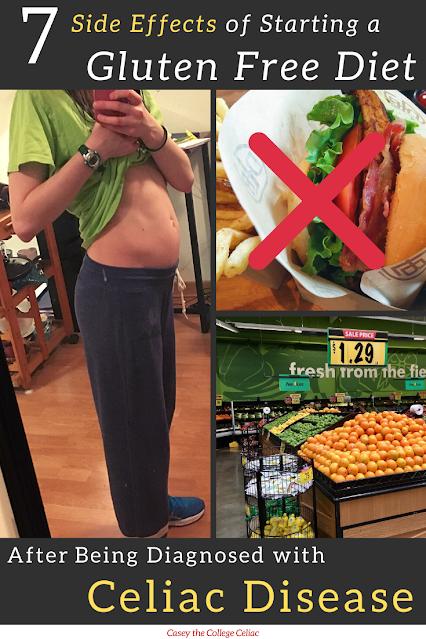
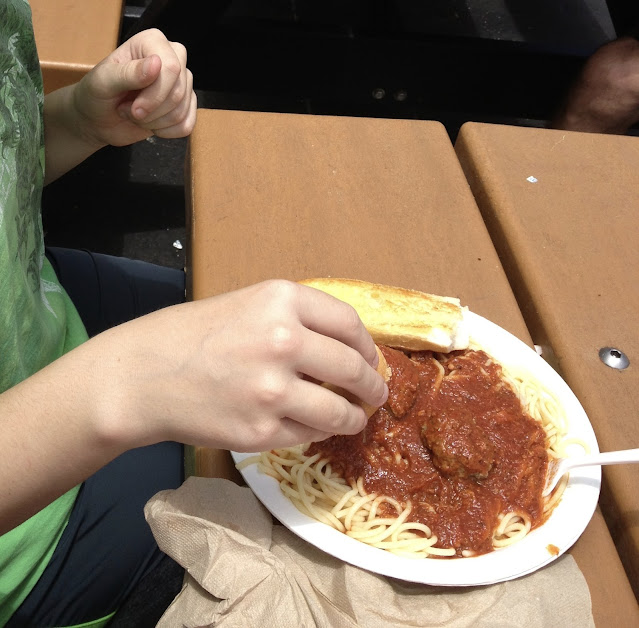
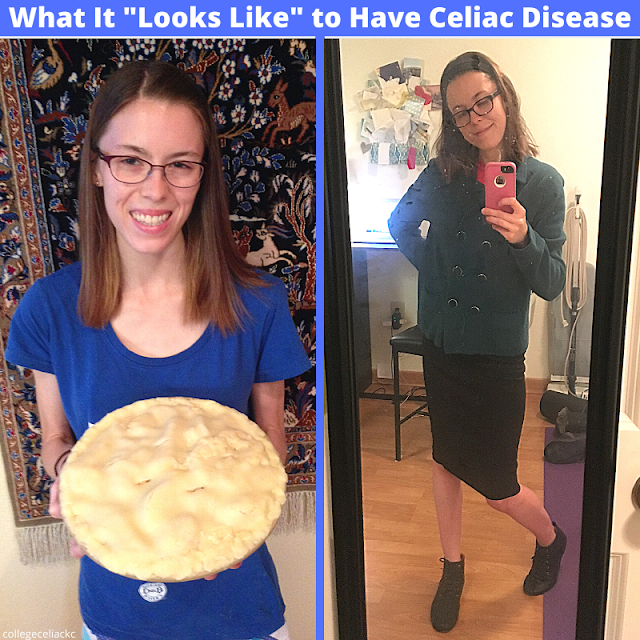
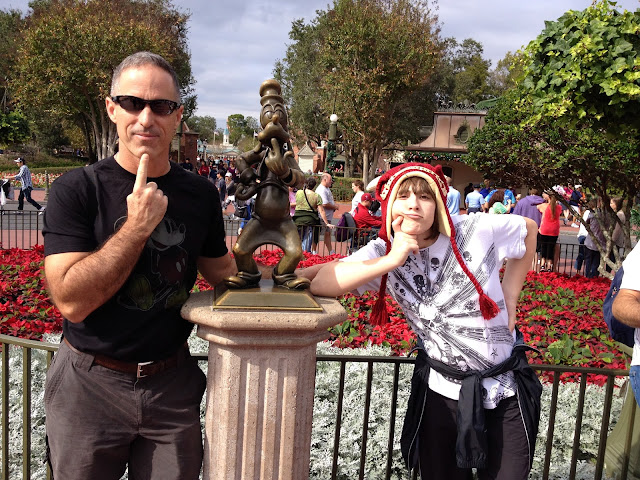
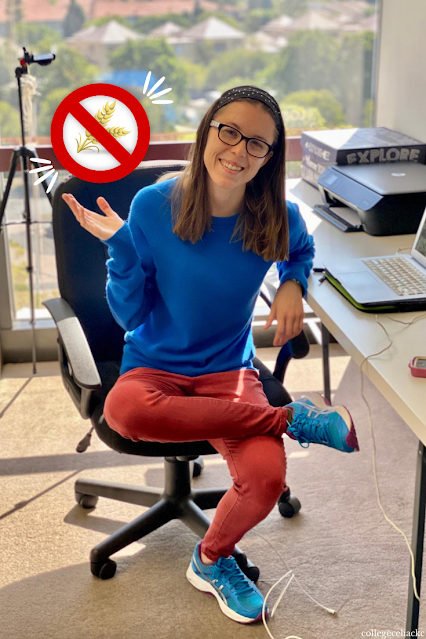
Comments
Post a Comment